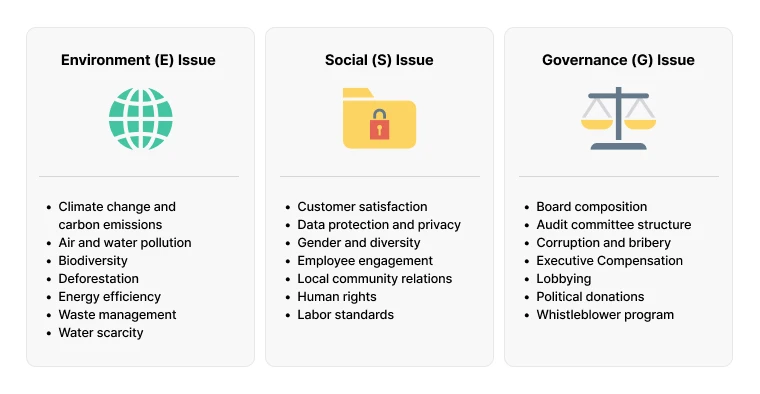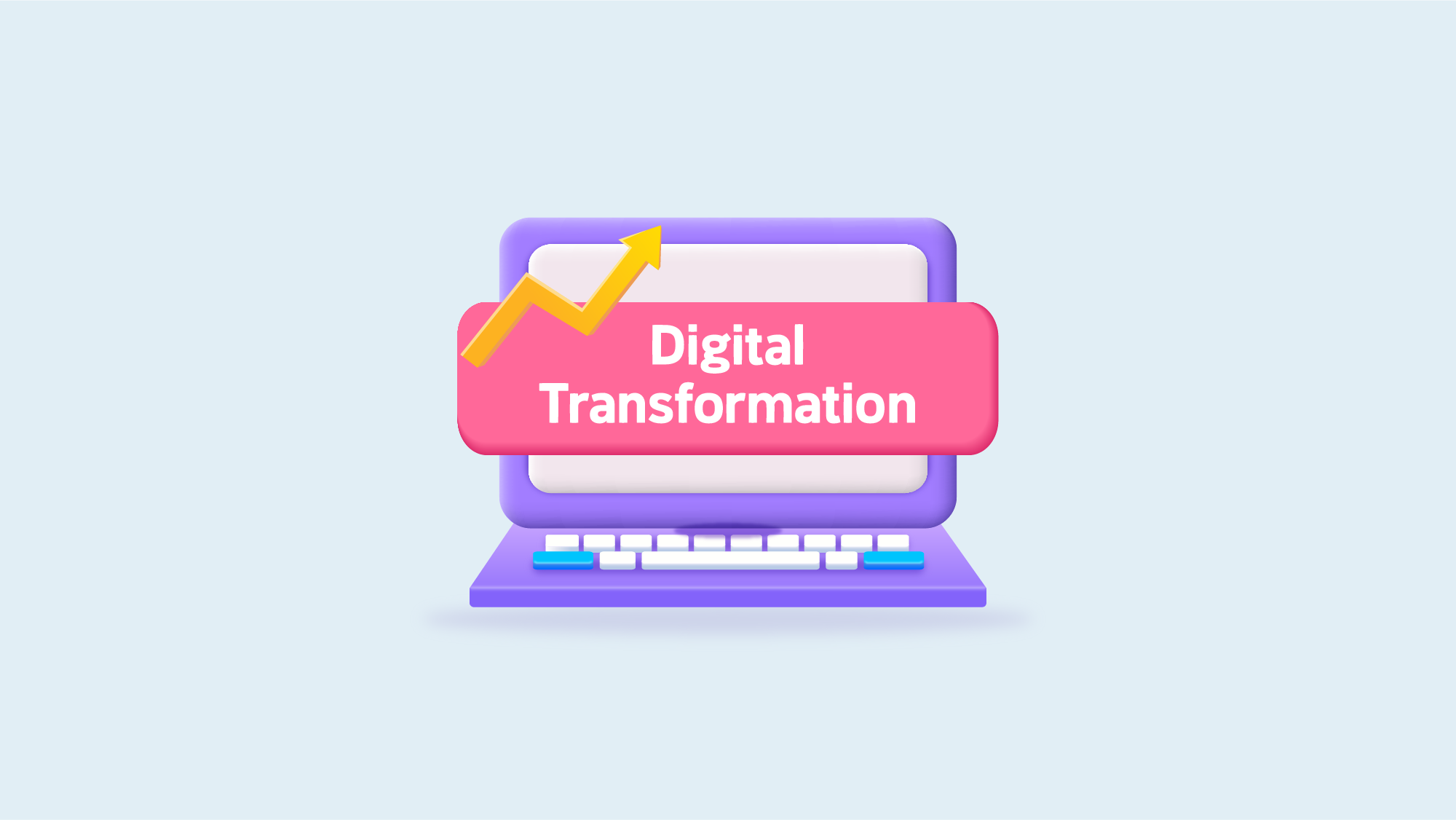Three ESG Digital Transformation Success Stories
Elice
16/02/2023
Have you heard of ESG digital transformation or Twin Transformation? These concepts are crucial topics in modern corporate management, representing a shift towards environmentally friendly, socially responsible, and transparent business practices. In the wake of the COVID-19 pandemic, consumers have become more conscious, not just about the profits a company makes, but also about its environmental, social, and governance initiatives. As a response to these societal changes, a new concept has emerged, known as “Twin Transformation.” It emphasizes the significance of simultaneously tackling the two key challenges of digital innovation and sustainability, as they play a pivotal role in determining a company’s long-term performance.
As consumers increasingly seek products from companies engaged in ESG activities and intentionally make such purchases, digital transformation initiatives showcasing ESG activities are bringing these digital-focused companies even closer to consumers. Therefore, many companies are considering ESG management strategies through digital transformation initiatives. What is Twin Transformation, the combination of ESG management and digital transformation, that has become a significant topic among companies and consumers? Today, we will explore ESG management, digital transformation, and Twin Transformation. We will also examine successful cases of ESG digital transformation.
ESG Management

What is ESG Management?
Shall we start by looking into ESG? ESG is an acronym composed of the initials for Environment, Social, and Governance. It signifies that companies are not merely working for the benefit of shareholders but are also actively seeking environmentally friendly solutions, pursuing social responsibility, and advocating transparent corporate structures to strive for sustainable management.

In the realm of ESG components, the environmental dimension includes considerations such as the impact of climate change, energy efficiency, reduction of environmental pollutants, and the development of eco-friendly products. Within the social sphere, it encompasses human resource management, industrial safety, stakeholder engagement, workplace well-being, and benefits, as well as health and safety. Lastly, governance pertains to broader aspects like supply chain management, business conduct guidelines, crisis management, and shareholder relations, encapsulating the comprehensive management framework of a company.
ESG management is a term first introduced in 2006 through the United Nations Principles for Responsible Investment. ESG management refers to a crucial concept that involves evaluating the non-financial factors of a company, going beyond merely demanding ethical responsibility from the company. Indeed, in 2020, Larry Fink, the CEO of BlackRock, the world’s largest asset management company, emphasized the significance of ESG by stating, “ESG will be a core consideration in our investment approach.” This statement garnered global attention, highlighting the importance of ESG factors in investment decisions. Following this trend, South Korea also experienced a surge in ESG corporate management starting from 2021.
Why ESG Management Is Important
ESG management continues to gain importance due to the accelerating issues of environmental pollution, social problems, and unfair and opaque corporate governance structures within the context of industrial development. These challenges can be addressed through corporate transformation. In addition, consumers in modern society are becoming increasingly aware of the seriousness of environmental issues. Therefore, consumers strive to use environmentally friendly products and services to ensure that their consumption is not linked to harmful environmental production processes. This consumer trend extends beyond eco-friendly products, supporting companies that uplift local communities, assist vulnerable populations, and uphold fairness and transparency among all members of the organization.
Investing in ESG practices also makes sense for investors and companies alike. From an investor’s perspective, considering ESG in investments can lower risks and increase risk-adjusted returns in the long run. For companies, investing in ESG can create social value in addition to achieving financial performance. From a corporate perspective, ESG helps secure a competitive advantage in the market and predict new business opportunities, making it increasingly important from a managerial standpoint.
Why Digital Transformation Is Gaining Traction in ESG Management

What is Digital Transformation?
Digital transformation, known as either DX or DT, entails incorporating digital technologies and a digital mindset into every aspect of a company’s business, spanning production, planning, management, marketing, and more. It is vital for improving operational efficiency and is a focus for many businesses today. Companies are investing in digital transformation education and implementation to stay ahead in the competitive landscape. Therefore, the importance of digital transformation in ESG corporate management is being emphasized. Let’s explore the recent trend in ESG corporate management and digital transformation that is sweeping the business world.
Why Digital Transformation Is Gaining Traction in ESG Management
ESG management and digital transformation are not separate goals but rather approaches that are pursued together. With the emergence of the new term “Twin Transformation,” the importance of integrating digital transformation and ESG management has become even higher.
Ultimately, one of the reasons why digital transformation (DX) is important in ESG management is because DX, which refers to a company’s digital transformation, ensures transparency in management by providing important information and data for decision-making. It also offers practical solutions by reducing carbon emissions and minimizing the use of unnecessary paper and plastic. Primarily, the key prerequisite for embarking on genuine Twin Transformation is the acquisition of “enterprise data.” The data that the company produces must be accurately classified, structured, reorganized, and effectively incorporated into the business strategy. Through this process, securing data is essential to concretize the transition into ESG business.
Want to learn more about the concept of digital transformation?
Success Stories of ESG Digital Transformation

Successful examples of ESG digital transformation, combining ESG management and digital transition, or Twin Transformation, can be illustrated as follows:
E (Environment) - Hyundai Motor Company Digital Twin
Hyundai Motor Company is an example of combining ESG management and digital transformation. They have utilized a new technology called Digital Twin when developing new car models. Previously, it took dozens or even hundreds of prototype cars to develop a new car model. The cost of producing prototype cars typically amounted to an average of 300 billion Korean Won, and the necessary resources including manpower, time, and components were also substantial. What about the carbon and energy footprint of prototyping and testing? Excessive prototype production naturally raises concerns about environmental pollution and waste.
Hyundai combines ESG and DX to address these issues. The use of digital twin technology, which allows the creation of a virtual model identical to the actual car in a virtual space, enables simulation and gathering of essential data. This technology has enhanced efficiency in the development and production processes of new products. In fact, Hyundai is now implementing a dual transformation approach, significantly reducing the number of prototypes, minimizing waste and carbon dioxide emissions during the testing phase, and achieving ESG (Environmental, Social, and Governance) corporate management through digital transformation.
S(Society) - SKT AI Care
SK Group is one of the leading Korean conglomerates actively engaged in digital transformation and ESG corporate management. SKT addresses the social issue of an aging society by utilizing AI technology. One of the solutions is the AI caregiving service called “Nugu Care Call.” This service, powered by the AI assistant “Nugu,” recognizes the voices of the elderly and provides an emergency SOS service by connecting them to 119 in urgent situations. Additionally, it offers various interactive features like playing music and engaging in conversations with the elderly to alleviate their feelings of loneliness.
The AI caregiving service, “Nugu Care Call,” can be easily accessed by connecting it to an AI speaker. This service is designed for the elderly, making it effortless for them to use. It can be said that this is a good example of Twin Transformation, using AI technology to address the health, safety, and psychological issues that can arise in an aging society.
G(Governance) - Nonghyup Digital Audit
Recently, the financial sector has been actively adopting digital audits to enhance transparency and accuracy in the governance aspect (referring to “G” in ESG), emphasizing the importance of corporate governance. Nonghyup is a prime example of this. With the introduction of digital audits, accuracy, and efficiency have significantly improved compared to traditional analog methods of accounting audits. Moreover, the transition from sample-based audits, which were conducted due to physical limitations, to comprehensive analysis through digital methods has enabled the acquisition of transparent financial information and specific details effectively.
Nonghyup is composed of individual units, making it challenging to conduct comprehensive audits across all units until now. Now, by utilizing computer systems, audits can be performed on agricultural and livestock cooperatives (Nonghyup) without the need to visit each location directly. This achievement represents the digital transformation in the realm of ESG, known as digital auditing. Indeed, Nonghyup has created a more accurate and efficient governance structure compared to the past by standardizing audit information sharing and accumulating data through digital platforms. By overcoming constraints related to time and space, this approach eliminates the limitations that were previously faced. This stands as another excellent example of Twin Transformation.
Why is digital transformation training important for ESG management?

To achieve this goal of ESG corporate governance, digital transformation must now go hand in hand. ESG digital transformation represents an efficient and effective management approach, utilizing digital technologies to achieve improvements in environmental, social, and governance aspects.
However, digital transformation for ESG management is a change in management style and must be implemented across all business elements of a company. This is why the importance of digital transformation education in companies is even more emphasized. Therefore, the importance of digital transformation education within companies is increasingly emphasized. Elice provides effective digital transformation education, and domestically renowned companies like SK, KT, CJ, and others that have successfully undergone digital transformation have already utilized Elice’s services for their digital transformation education programs.
Now, with the emergence of the term “Twin Transformation,” the relationship between ESG management and digital transformation has become inseparable, forming an interconnected synergy between the two. If you want to adopt the Twin Transformation, seamlessly integrating ESG management and digital transformation quickly and effectively, consider reaching out to Elice, an organization with extensive experience in digital transformation education.
Go to Elice for digital transformation training - Contact us
*This content is a work protected by copyright law and is copyrighted by Elice.
*The content is prohibited from secondary processing and commercial use without prior consent.
- #DX
- #insight






